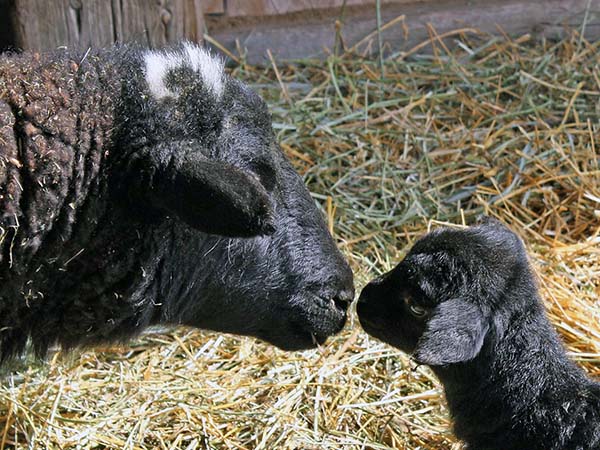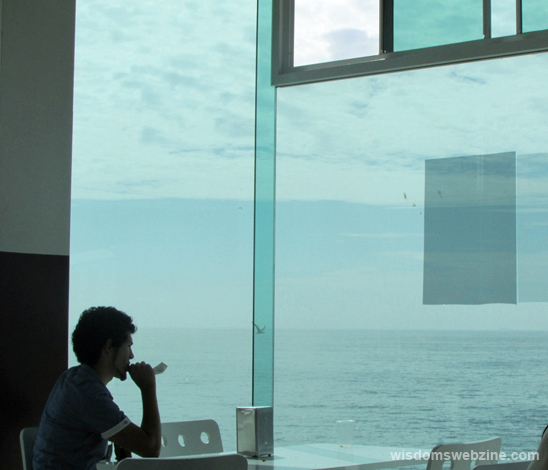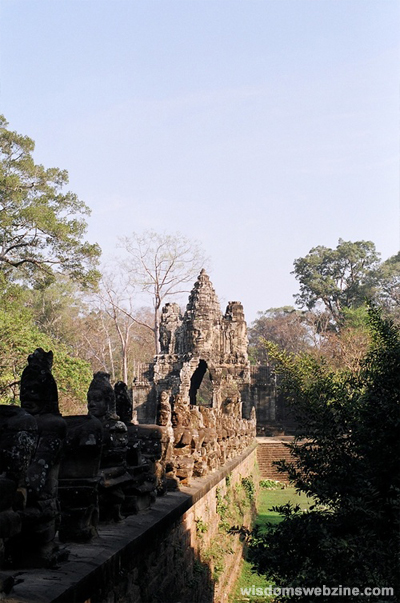The year 2012 is now drawing to an end. Whenever you think of 2012, the first words that come to mind are, “The End of The World!” Upon the discovery of the Mayan Calendar, ending on December 21th, 2012, a myriad of eschatological hypotheses flooded forth from all over the world. Despite the announcement that this date of “the last day” was misinterpreted, many people still support the eschatology at this point: it is as if people are looking forward to the end of the world. Even though this phenomenon hasn’t been realized, several movies depicting the apocalypse were produced and some are still being filmed. Among these movies, Roland Emmerich’s <2012> is the most representative movie portraying people’s conceptions of the end of the world.
The movie begins in 2009 when a meteorologist presents a forecast of a highly-expected and devastating mega-Tsunami. Following this presentation, officials hold a G8 Summit, at which confidential strategies to approach the case of the apocalypse are delivered to the G8 nations. It is decided that they should construct a gigantic ark, and only those who paid the exorbitant admission of 1 billion Euros can board. In exactly 2 years, 2012, the catastrophe begins with earthquakes, Tsunamis, and volcanic explosions which kill millions of people. Those who escaped from the catastrophes and managed to get on the ship finally land on the Cape of Good Hope in South Africa. The movie ends with the hopeful vision of those who survivors.
Why does mankind consistently bring up this hypothesis of the end of the “physical” world even though there is no evidence that this would really happen? Is it because people are desperate for change? Since people feel the futility of this life? Or is it simply a yearning for a new world that might be revealed after this mammon world ends.
Ironically, however, this vision of a hopeful future is established on the idea where “I” would survive. I am not particularly concerned about others, but “I” must survive. From this, we come to realize how selfish and self-centered human beings are (without a doubt, I am also one of them.) But from another aspect, underneath the blind hope, we might have subtly hidden our biggest fear: fear of death which derives from the complete vagueness of where I am heading while living and where I will eventually go after I die.
Natural disasters have constantly struck the globe, and will continue to do so. It is true that climate change is an ongoing phenomenon at this moment, but that probably won’t cause the physical apocalypse. It is discussed by some scientists that the apocalypse will happen when a collision with unknown asteroids or comets occurs. However, I consider this hypothesis to be generated from the combination of yearning for change, and the fear of death, etc. Then, wouldn’t this constant reminder of the apocalypse be a wake-up call showing us how ignorant we are of the fundamental life questions: Why we came to world, why we live and where we go after we die? How great would it be if there was a method to resolve these fundamental questions? I believe the answer to these questions is the longest cherished wish of all mankind.
From a different perspective, wouldn’t the prophecies of the end of the world, which people predicted, be the closure of the false human mind world? Instead of a new world after some physical change breaks out upon the current world, the true new world will be one where we can discover through the truthful introspection of our inner selves. If there is a method of finding the new world within, the ark is the method and the Cape of Good Hope will be our true destination; the new world. It seems the movie <2012> metaphorically describes that the new world after the catastrophe (hardships of our lives) is the change we actually longed for as well as the hope.







